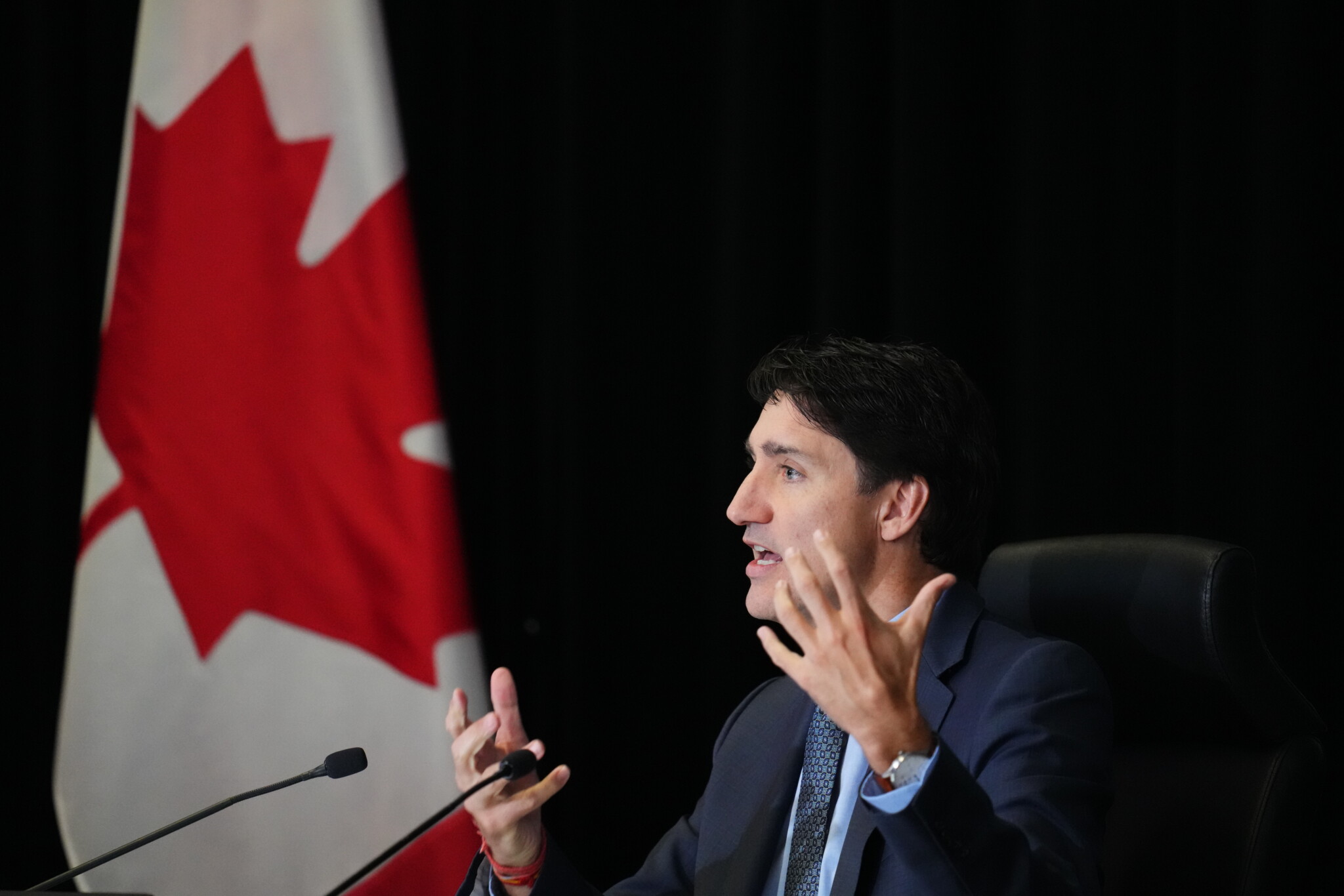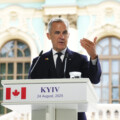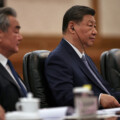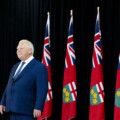For the third time in two years, Prime Minister Justin Trudeau was back in front of an inquiry examining his government’s controversial handling of national security matters—this time, it was a second appearance on foreign interference.
On Wednesday, facing an audience that had been numbed by weeks of process-oriented discussion, Trudeau detonated explosively partisan testimony: CSIS has provided him with a list of names of members of the Conservative Party of Canada who raised significant concerns of connections to undue foreign interference, he claimed.
Trudeau, with his showman’s flair, had picked his moment to become combative. With months turning into years over the course of his repeated inquiry appearances, the focus of these proceedings has been shifting away from his personal responsibility for security matters and leadership skills to issues of general governmental processes.
At his first appearance at the Public Order Emergencies Commission (POEC) in November 2022, Trudeau walked out to very formal proceedings packed wall-to-wall with journalists, academics, and interested members of the public, in-person and online. Everyone involved wanted to know how exactly he, as prime minister, justified mobilizing the Emergencies Act to quell what he regarded as the threat to Canada’s national security posed by the freedom convoy protest movement. The prime minister impressively walked the line in a volatile situation where people were looking for a reason to tear him apart over any slip of hubris about his decision to mobilize the government’s most extreme powers.
At his first appearance at the Public Inquiry into Foreign Interference (PIFI) in April 2024, a similarly hyped up—albeit smaller—crowd was on hand to hear the prime minister’s account of what he had been told and when by CSIS and his inner security circle about the People’s Republic of China’s efforts to sway Liberal party nominations towards candidates preferred by that hostile ideological state—the most notable example being alleged irregularities in Han Dong’s 2019 nomination in his northern Toronto riding. While still largely effective, Trudeau appeared testy over questions of whether his actions to investigate alleged irregularities were sufficient—and defiant on the point that he would not tighten up nomination rules in the future.
For round three this week, Trudeau calmly took his seat several minutes before the judge started proceedings for the day. Leaning back in his chair, he took in the room, no doubt noticing that there appeared to be not one single member of the public present. Hardly surprising, given that only the attending lawyers, accredited media, and a couple of academics masquerading as journalists for the day would be interested in the focus of the second phase of the PIFI’s proceedings: procedural matters of how exactly sensitive intelligence information moves from CSIS, the RCMP, and the online watchdog the Communications Security Establishment (CSE) through to cabinet ministers, the PMO, and, finally, to the PM himself.
So it began, with 90 minutes of droning testimony about how the prime minister goes about a typical week of consuming sensitive intelligence materials. On Mondays, he receives a binder of documents and some source data that has been compiled by CSIS and then curated by his National Security and Intelligence Advisor (NSIA). This takes about an hour to go through, whereupon he may follow up with requests that either he or his NSIA receive more information directly from CSIS. Under the harsh fluorescent lighting and over these dull words you could hear only the occasional cough or squeak of the seat under the weight of a bored and stationary crowd of well-fed professional listeners.
Finally, questions turned to what Trudeau could do with intelligence material that he is not permitted to discuss with the public or any caucus members or bureaucratic staffers who do not have the highest levels of security clearance.
Trudeau the showman saw his moment to pull the pin.
Beginning with a long preamble about the need to avoid undue partisanship, Trudeau leaned forward in his chair and said in a somber tone that he had in his possession lists of Conservative Party members for which CSIS had provided reliable intelligence indicating undue contamination from foreign interference. Coughs and squeaks around the room were immediately drowned out by a frenzy of keyboard typing and camera clicking.
Now that he had everyone’s attention, Trudeau began to lay it on thick. He found it “irresponsible” and “baffling” that Pierre Poilievre as leader of the Opposition would not obtain the security clearance necessary to receive this information to be able to act on it; to either cleanse his party of inappropriate members or defend those who were being accused with “shoddy or incomplete intelligence.”
Trudeau then contrasted what he said are the core tools he has available to politically manage members of his own party, who he later admitted under cross-examination were on the same lists containing the CPC members. He said he could refuse to sign nomination papers. If they were elected, he said he could effectively sideline them within government, avoiding promoting them to prominent and sensitive roles in cabinet or as parliamentary secretaries. He could also see to it that they not be placed on the most important committees.
The effort to paint a contrast between himself as a responsible leader of action and Poilievre who he considers an ostrich (with his head in the sand) on the foreign interference file was apparent. This would, however, only be a simulacrum of action, given that Trudeau and his government have done nothing to reassure Canadians that they have actually taken any such steps to sideline any of their parliamentarians who have raised concerns—apart from Deputy Prime Minister Chrystia Freeland stating that the party would undertake an “internal review” of these matters over the summer, and Trudeau’s chief of staff, Katie Telford, revealing in her PIFI testimony earlier in the week that the PMO had worked to ensure that Dong not be appointed to a key committee tasked with analysing Canada’s relationship with China.
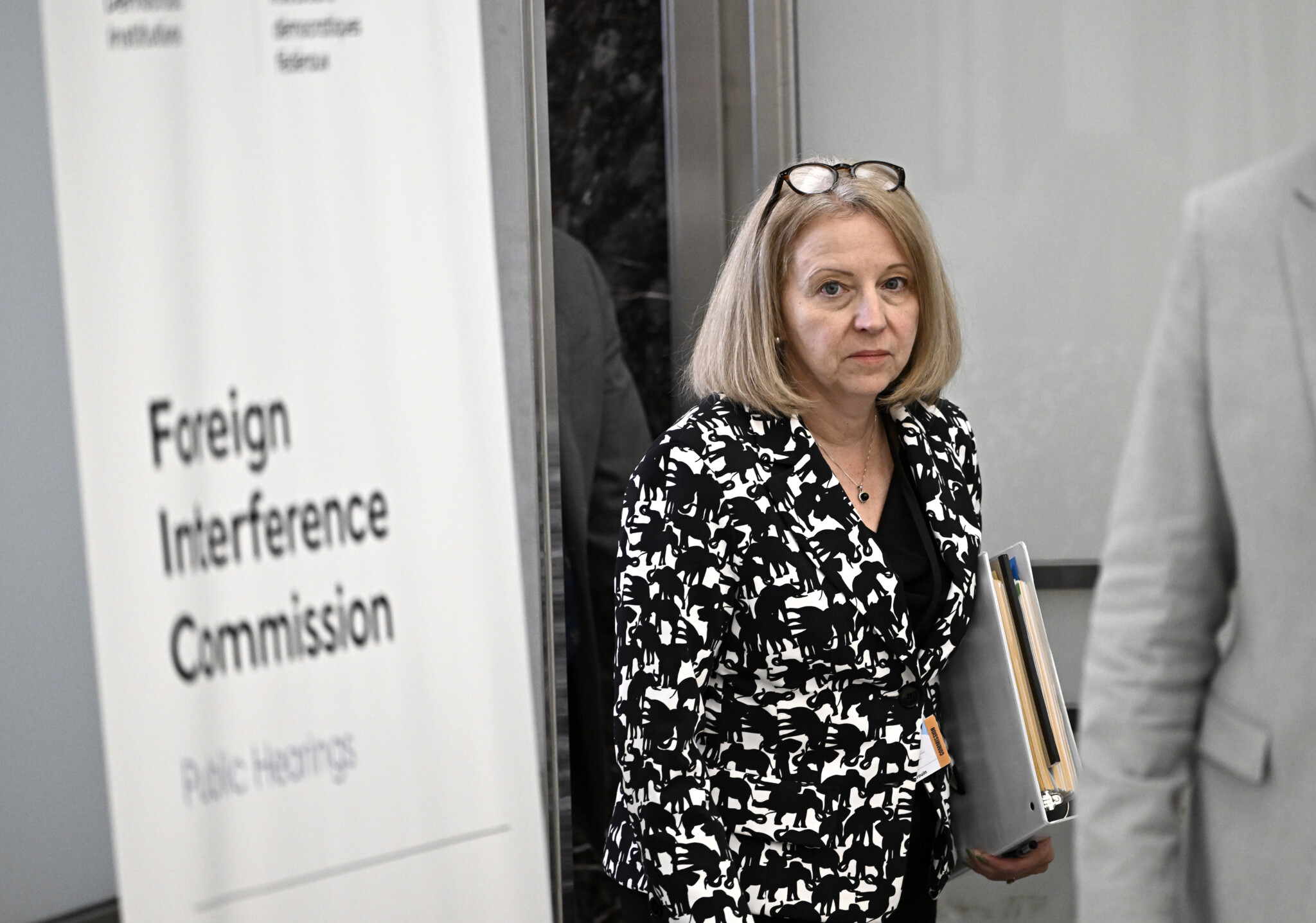
Nathalie Drouin, National Security and Intelligence Advisor to the Prime Minister, leaves the hearing room during a break at the Foreign Interference Commission in Ottawa, on Wednesday, Oct. 9, 2024. Justin Tang/The Canadian Press.
Further, a great deal of mental gymnastics is required to vault over Trudeau’s initial efforts to depict foreign interference in Canada’s political process as a nothingburger. First came efforts to paint anyone questioning Dong as an anti-Asian racist. Then came a year-long effort to avoid calling an inquiry that included the farce of appointing an old family friend as a “special rapporteur” to beaver away on the file in his professor’s study. Could we not have cut to this chase of how governments use intelligence to politically manage foreign interference when intelligence falls short of the evidentiary standards necessary for criminal prosecution?
The simulacrum of action carries over to the question of reforming nominations. At present, only the Liberal Party of Canada permits non-citizens or permanent residents to vote in their party’s nominations. This creates a situation where teenage foreign students who are studying in Canada and are vulnerable to foreign pressure can decide who should stand as candidates in upcoming Canadian federal elections. NSICOP, dozens of academics and commentators, and the first report of the PIFI itself have pointed out the susceptibility of such nominations to foreign capture. Yet on this, Trudeau continued to stand defiant. Under questioning, he insinuated but did not confirm that CSIS does not share NSICOP’s appraisal of the inadequacy of these lax rules. He then leaned into his standard argument that the broadest rules actually provide an “introduction” to democratic participation for those who may one day become Canadian citizens.
Trudeau succeeded in getting his headlines: “Bombshell accusations” was the phrase at the top of the broadcast hours and dozens of written pieces summarizing the day’s testimony. A more accurate term, however, would be “bombshell language”—because Trudeau did not tell us anything we have not already heard. In the original NSICOP report that first spoke in June 2024 of the “witting” participation of parliamentarians in foreign interference schemes, it was heavily implied that this was not a problem limited to any party. The leader of the NDP, Jagmeet Singh, let slip after his reading of that report a week after its publication that there were members of the Conservative Party on those lists.
In short, we already knew all of this. We just hadn’t heard the prime minister say it, in a forum where he knew the room was desperate for anything interesting. It was a move of political partisanship, sowing doubt in the integrity of the Conservative Party of Canada, in the integrity of general nominations, and in our electoral process. For a prime minister who used the vaccination issue as a political wedge to try to pry open an opportunistic majority government in 2021, this is a second example of polarizing partisanship beneath his office.
Since we are handing out fair lumps, Poilievre’s grasp of the foreign interference file has been no less opportunistic and partisan. In his public statement following Trudeau’s inflammatory testimony, Poilievre accused the prime minister of “lying” and repeated his frequent calls to release the full list of names of parliamentarians about whom there are intelligence-based concerns.
Releasing such names is an understandable desire: if voters do not know who has been accused, everyone is under a cloud of suspicion, and faith in the electoral system is diminished.
But the danger is of course that some may be tainted based on only the flimsiest of intelligence, which, if made public, could reveal to hostile states how exactly we came to know of their meddling. This might include burning some of our Five Eyes ally sources—whereupon Canada would be frozen out of our most important international intelligence network.
Should Poilievre wish to present himself as the more responsible choice over Trudeau as prime minister, he should obtain his security clearance without delay and do the hard leadership work of politically managing any foreign interference in his party. And he should do so in a manner that exceeds Trudeau’s simulacrum of action in Liberal quarters.
